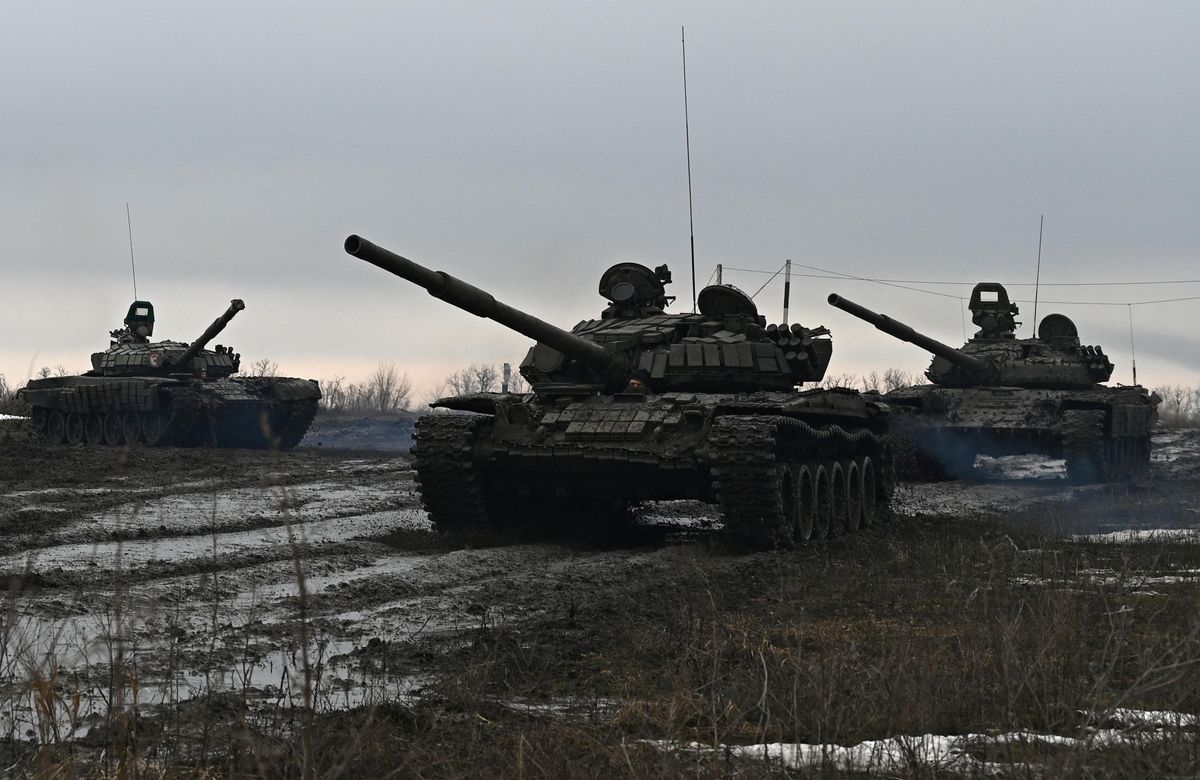The Russian offensive has begun
After much speculation about Russia’s next military steps, NATO chief Jens Stoltenberg said Monday that Russia has begun a new offensive in Ukraine. "We see how they are sending more troops, more weapons, more capabilities,” he said during a press conference in Brussels. Russia’s immediate goal, according to Eurasia Group analysis, is to gradually overwhelm outnumbered Ukrainian forces and take full control of the so-called Donbas region of Donetsk and Luhansk provinces, two of the Ukrainian regions Russia annexed last September. The early timing of this new escalation suggests Russia hopes to make significant gains before powerful new weapons sent by the West arrive in Ukraine. It’s also possible that Ukrainian forces will respond to Russia’s incremental escalation by trying not only to repel Russian attacks but to advance south to cut the land bridge Russian forces established last year between the Donbas region and Crimea. The bottom line: This new Russian offensive will offer the first true test of military strength since Moscow mobilized 300,000 more troops last fall. The world will learn a lot about whether the Russian army has greatly improved its training, weaponry, and ability to coordinate a large-scale operation.
Raisi heads to China in bid to deepen ties
Ebrahim Raisi is bringing one hefty entourage to Beijing this week on the first visit by an Iranian president to the Middle Kingdom in 20 years. With Iran’s economy reeling from western sanctions over its nuclear program, its shipment of drones to Russia for the war in Ukraine, and its brutal crackdown on protesters following the in-custody death of Mahsa Amini, Tehran hopes to foster economic growth by deepening trade ties with China. Raisi’s main goal is to implement a sweeping 25-year cooperation agreement the two countries signed in 2021 that includes economic and security cooperation. He is scheduled to meet with Chinese President Xi Jinping, and talks about reviving the Iranian nuclear deal are expected. The countries have grown closer in recent years – China remains Iran’s top trading partner, and Beijing has supported Tehran’s successful bid to join the Shanghai Cooperation Association and even supports the country’s efforts to join the powerful BRICS economic bloc of Brazil, Russia, India, China, and South Africa. The push for greater cooperation comes despite a recent tussle over China’s support for negotiations to settle a territorial dispute between Iran and the United Arab Emirates over three islands Tehran has controlled since the 1970s. We’ll be watching to see whether Xi and Raisi have any big announcements this week.







